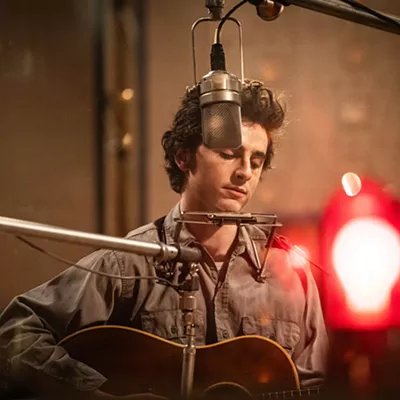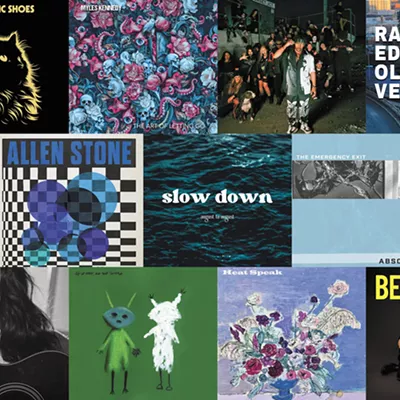The Disaster Artist is the funniest movie of 2017. It's not even close.
But here's the catch: To fully appreciate its brilliance, you need to subject yourself to watching The Room, one of the worst films of all time.
The Room is almost an indescribable film that can only be believed when seen. It's one of those films that would be tortuous to watch alone, but can be a blast in a group where everyone can constantly pull a Mystery Science Theater 3000 at every "what is happening?!?" moment. (For the smallest taste: There are many love scenes in the first half hour, and some reuse the same footage.) It's as if someone described the idea of a dramatic love triangle movie to an alien that had never interacted with humans, and then the otherworldly creature made an independent movie.
Tommy Wiseau is that alien. As the writer, director, producer and star, The Room is fully Wiseau's eccentric vision. The Disaster Artist (based on the nonfiction book of the same name) tells the almost unbelievable true story of the making of The Room through the eyes of Greg Sestero, Tommy's friend and the film's second lead.
As a nervous aspiring actor, Greg (Dave Franco) finds himself enthralled by the performances Tommy (James Franco, who also directs) puts on in their acting class. They're horrendous, but he's so unafraid to be over-the-top and just go for it. The oddball pair soon strike up a friendship and move to Los Angeles to pursue their Hollywood dreams.
Everything about Tommy is unexplainable — his accent (he claims he's from Louisiana, but it's implacably European), his mannerisms, his inability to act normal socially, his real age, where he gets his money (which seems like an endless supply). And the list goes on. There is no one like Tommy Wiseau.
But Greg stays a loyal friend because they both positively support each other. When the Hollywood system rejects them (especially Tommy), he hatches a plan to make his own movie, and make it his way. And that way turns out to be baffling at every turn: a nonsensical script, shooting on two cameras at once, unnecessary green screen, using a documentary crew to spy on everyone.
It's not that The Disaster Artist doesn't hold up as its own film independent of The Room, but seeing it without the contextualization would almost be like only watching the last Harry Potter movie — the impact just isn't the same without understanding the backstory and players involved. There are tons of moments in The Disaster Artist that aren't "jokes," but elicit strong laughs from those who've seen The Room because they understand the insanity of the whole situation.
In by far the best performance of his career, James Franco fully morphs into Wiseau, and the supporting cast is overloaded with excellent comedic talent (Seth Rogen, Alison Brie, Nathan Fielder, Zac Efron, Paul Scheer, to only name a few), but they're all there to play the straight men and women to Tommy's unintentional stooge.
Because of The Disaster Artist's relative grounding, the film manages to make some sincere and compelling points about what constitutes a creative success. Can a movie actually be considered a failure if it brings immense joy to people, even if unintentionally? The Room is terrible filmmaking, but it's a cult hit that's made money and continues to have midnight screenings around the globe because people love to laugh at it.
The Oscars are always littered with movies celebrating the magic of moviemaking (from Argo to The Artist to La La Land), but The Disaster Artist posits that navel gazing might be B.S. Instead, it celebrates the act of an audience enjoying a movie.
Tommy Wiseau is strange, but then again, life is strange, and The Disaster Artist is strangely brilliant. ♦



















